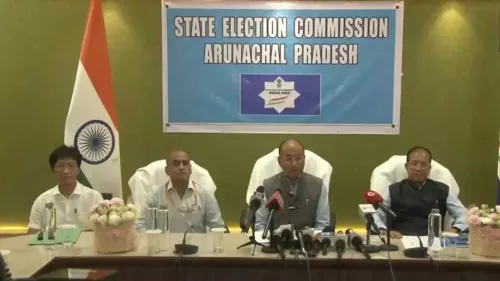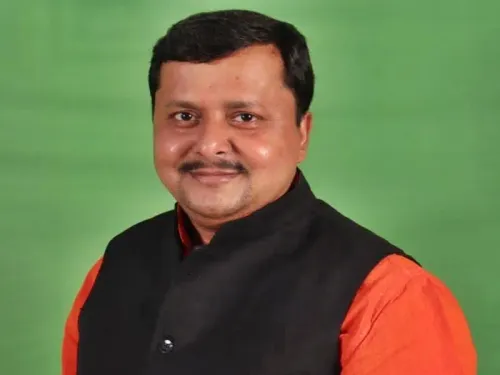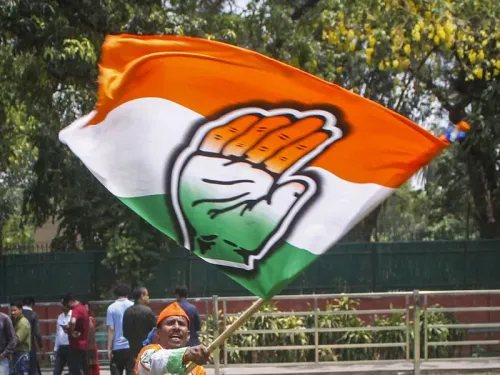What Does the Rahul Mamkootathil Controversy Reveal About Factional Tensions in Congress?

Synopsis
Key Takeaways
- Rahul Mamkootathil's suspension reflects internal discord.
- V.D. Satheesan's leadership is being tested.
- Factional tensions could affect legislative priorities.
- Unity is crucial for effective opposition against the ruling government.
- Resolving these issues will determine Congress's future direction.
Thiruvananthapuram, Sep 11 (NationPress) The situation surrounding suspended Congress leader Rahul Mamkootathil's possible attendance in the Assembly session has unveiled the intricate factional tensions within the historic party's Kerala unit, challenging both its cohesion and the credibility of its leadership.
The Leader of Opposition, V.D. Satheesan, has adopted a firm stance, asserting that Mamkootathil should refrain from participating.
His faction contends that Mamkootathil's presence might distract from the opposition's legislative priorities, giving the ruling coalition a chance to shift attention away from criticism and towards the Congress's own "disciplinary issues."
For Satheesan, this situation is a litmus test of his authority to steer the party's political strategy.
However, dissenting voices are emerging.
The A-group (the former faction associated with A.K. Antony), along with other party segments, believes that excluding Mamkootathil could undermine their capacity to challenge the Left government.
They question why Congress should enforce stricter rules on itself when ruling front MLAs facing allegations remain unscathed.
For these members, Mamkootathil's exclusion is politically detrimental and symbolically disproportionate.
In light of this, senior leaders have attempted to project a united front.
They emphasized that Mamkootathil's suspension wasn't merely Satheesan's individual choice, but rather a collective decision by Congress leadership, supported by the AICC and announced by the KPCC president.
"Initially, the media questioned whether I veered off course to protect this young man. Now they're asking if I conspired to ruin him. How can I be guilty of both? Everyone knows the complainant isn't a Youth Congress member. More such spectacles will unfold," said Satheesan to the press on Thursday.
Yet, the very necessity to stress collective responsibility reveals the underlying division.
The A-group has discreetly expressed discontent, alleging that Satheesan advocated for suspension when some favored a more lenient approach, while others leaned towards restraint.
As the new Assembly session approaches next week, Congress risks entering the House fractured, with its leadership defending a suspension on one side while managing internal dissent on the other.
The resolution of this conflict will determine if Satheesan can solidify his leadership or if factional negotiations will continue to influence Congress.










